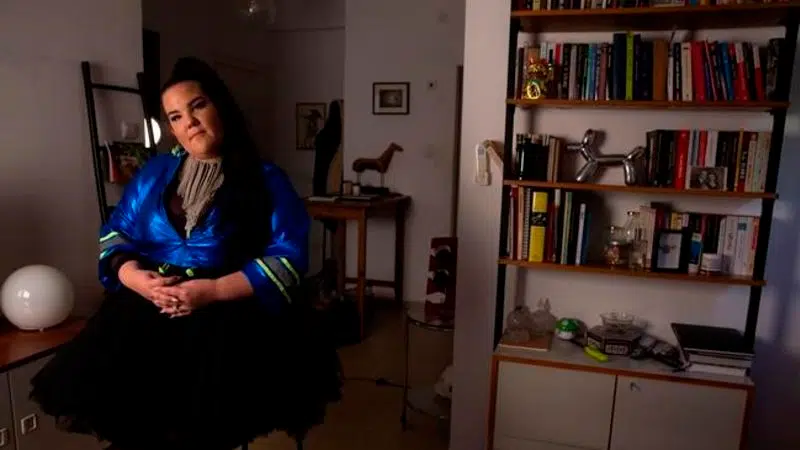
Israel Eurovision hero releases song on newfound fame
TEL AVIV, Israel — Israeli pop star Netta Barzilai, winner of last year’s Eurovision song contest, released a new single Friday which she says reflects the highs and lows in the year since her shock victory shook up her life.
Barzilai, 26, spoke to The Associated Press ahead of the release of her new song “Bassa Sababa.” She says the song, Hebrew/Arabic slang for “Bummer, that’s cool,” speaks to the thrills and challenges of her past year.
Barzilai’s signature chicken dance and catchy pop anthem inspired by the #MeToo movement, “Toy,” catapulted her to Eurovision fame last year, transforming her into a national celebrity. The official YouTube video has racked up over 100 million views in the last year.


